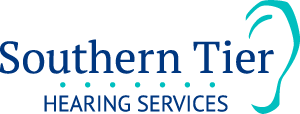Hearing Loss Prevention
Noise is one of the most common causes of hearing loss, and one of the most common occupational illnesses in the United States. A single shot from a shotgun, experienced at close range, may permanently damage your hearing in an instant. Repeated exposures to loud machinery may, over an extended period of time, present serious risks to human hearing.
- 10 million Americans have already suffered irreversible hearing damage from noise.
- 30 million Americans are exposed to dangerous noise levels each day.
- The effects of noise on hearing are often underestimated because the damage takes place so gradually.
Excessive noise damages the delicate hair cells in the inner ear. This damage results in sensorineural hearing loss and often tinnitus (ringing of the ears). Dangerous levels of noise can come from working in noisy occupations or in engaging in dangerous recreational activities:
Beware of dangerous recreational activities: video arcades, fire crackers, discos, music concerts, shooting a gun, movie theaters, sporting events, motor boards, motorcycles, snowmobiles, “boom cars.”
Occupations particularly under risk for hearing loss due to exposure to noise are as follows: firefighters, police officers, factory workers, farmers, construction workers, military personnel, heavy industry workers, musicians, entertainment industry professionals.
If you have to raise your voice to shout over the noise to be heard by someone within an arm’s length away, the noise is probably in the dangerous range. Some of the warning signs of the presence of or exposure to hazardous noise are as follows:
- You can’t hear someone three feet away from you
- You have pain in your ears after leaving a noisy area
- You hear ringing or buzzing (tinnitus) in your ears immediately after exposure to noise
- You suddenly have difficulty understanding speech after the exposure to noise; you can hear people talking but you cannot understand them.
What You Can Do To Protect Your Hearing
- If you work in an at—risk occupation, check with your employer to make sure you have adequately protected your hearing according to OSHA regulations.
- Limit exposure time to noisy activities
- Wear hearing protection, such as foam or silicone plugs or muffs. Foam plugs are available at your pharmacy while muffs and specialized ear protection can be purchased at sporting good stores or safety equipment stores.
- At home, turn down the volume on the television, radio, stereos and walkmans.
- Wear ear plugs or muffs when using loud equipment (i.e. lawn mowers, power saws, leaf blowers).
- Buy quieter products (compare dB ratings — the smaller the better).
- Reduce the number of noisy appliances running at the same time in your personal environment.
- Avoid medications that can be dangerous to your hearing. Be sure to ask your physician about possible effects on your hearing.
An Ounce Of Prevention
Be alert to hazardous noise. Since prevention is so critical, make sure that your family (especially children), friends, and colleagues are aware of the hazards of noise. Remember: One-third of hearing loss is preventable with proper hearing protection.
